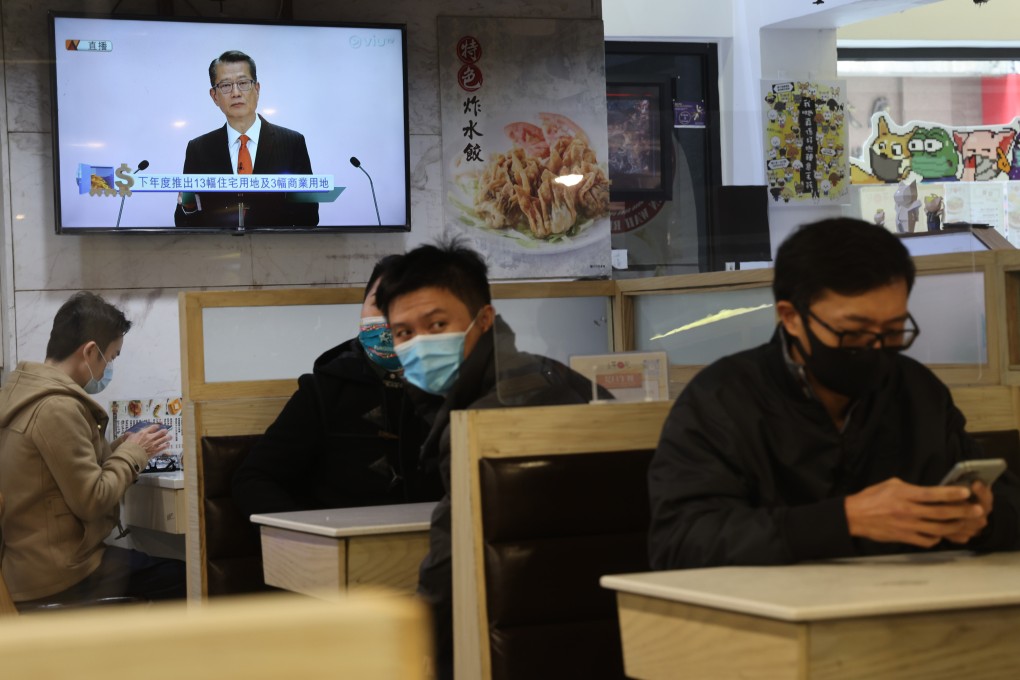Advertisement
Outside In | Hong Kong budget: Paul Chan’s forecast of a quick recovery from Omicron is just not realistic
- The financial secretary acknowledged the impact of the Omicron wave but expected a swift recovery in the rest of the year
- With a zero-Covid policy in place, can Hong Kong really reopen to the mainland and the rest of the world in a matter of months?
Reading Time:4 minutes
Why you can trust SCMP
1

There was a sense of surreal disconnection as I listened on Wednesday to Financial Secretary Paul Chan Mo-po unveil his 2022 budget. On top of the social distance of the video conference was the economic distance between the almost normal picture he was painting, and the zombie economy we are feeling for ourselves.
Paul Chan’s description – 6.4 per cent economic growth in 2021, with unemployment down from 7.2 per cent to 3.9 per cent, private consumption up 5.6 per cent and exports up 19 per cent – does not match what I see: shuttered stores and empty streets, restaurants under curfew from 6pm, and thousands of small enterprises on life support.
Our hotels would be zombies too, were they not providing quarantine facilities and a smattering of staycations to our hermit population.
Hong Kong’s statistical measures have always been adrift from the reality on the street, but the past two pandemic years have created a clear and cruel disconnection. How is it, for example, during what the International Monetary Fund has said is the deepest recession worldwide in a century, that our Official Receiver’s Office has reported fewer bankruptcies in 2021 than in almost any year in the past decade?
Advertisement
How is it that bankruptcies could surge in 2002 and 2003, around the severe acute respiratory syndrome outbreak, and again after the 2008 financial crisis, but flatline through the Covid-19 pandemic?
Despite the disconnect, our financial secretary, who could be a leading candidate to succeed Carrie Lam Cheng Yuet-ngor as chief executive if she opts not to stand for reselection in May, on Wednesday acknowledged the real-world distress being experienced by most Hong Kong families.
Advertisement
“The new wave of epidemic has disrupted the pace of economic recovery,” he said. The pandemic has “dealt a heavy blow to many people, disrupting both their life and work, and seriously affected the operations of small and medium-sized enterprises”, creating a “gloomy atmosphere”.
Advertisement
Select Voice
Select Speed
1.00x

